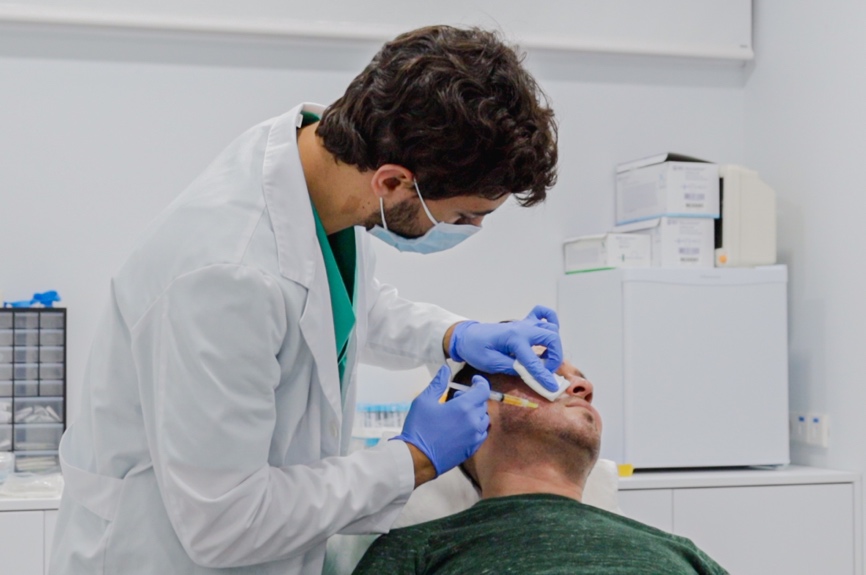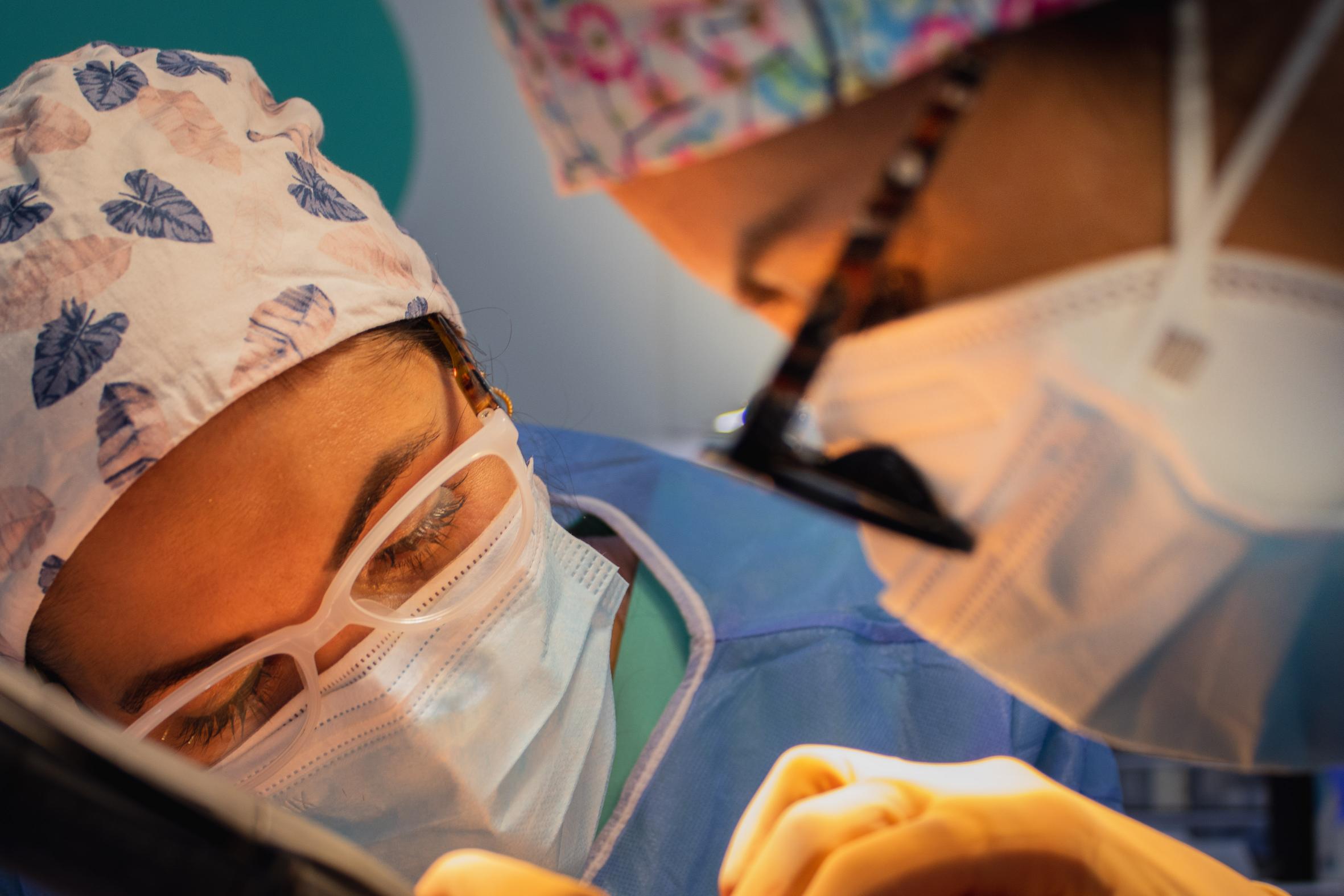
The beard is an element that has gained special relevance within the aesthetics of man. This is why more and more people go to barbershops and carry out daily beard care routines to look impeccable at all times. However, a large percentage of men suffer from what is known as beard alopecia. The lack of growth of facial hair, some diseases or traumas are some of the factors that prevent many men from showing off their beards.
At blog de Hospital Capilar We tell you all the information about beard alopecia: what it is, what are the main causes and types, and how it is possible to solve it.
Beard alopecia is defined as the lack or loss of beard hair, which prevents its full development. This usually causes physical complexes among those who suffer from it, even affecting their mental health. Consequently, There has been an increase in hair clinics in Spain for consultations on beard grafting and medical hair treatments aimed at promoting the growth of facial hair..
Beard alopecia manifests itself in different ways depending on the type of beard alopecia in question. This is why it is essential to go to a hair clinic where you can receive a medical diagnosis and thus provide the most effective treatment in each case.
In the same way that the symptoms of alopecia in the beard vary depending on the type in question, so does the treatment.
The most common beard alopecia among men is hormonal and genetic., and this is indicated by the medical team of Hospital Capilar. In these cases, the full beard does not develop during puberty. The lack of density is conspicuous but, nevertheless, It is the easiest type of beard alopecia to treat..
Another of the most common manifestations of bald spots in the beard is the alopecia areata on the beard. Unlike the genetic and hormonal type, alopecia areata in the beard manifests itself with the appearance of very characteristic rounded bald spots.
Alopecia areata in the beard is understood as a immune disease. In these cases it is the patient's own immune system that attacks the hair follicles, preventing hair growth. Factors such as stress or anxiety can aggravate the symptoms of alopecia areata in the beard.
The development of skin diseases such as folliculitis They are also the origin of bald beard and lack of density in the area. Folliculitis is the inflammation of the hair follicle caused by a bad shave, bacterial infections or the proliferation of fungi on the skin. It presents as small pimples with pus or pustules that, if not treated properly, can become chronic, preventing the normal growth of facial hair.
The whole range of scarring alopecia it also prevents having a full beard. When we suffer burns in the area or scars appear after trauma, the hair follicles can detach, preventing hair from growing in that area. In these cases, beard alopecia is very localized.
Lupus is a disease that affects the immune system and can be serious. This disease causes a general inflammation of the body that also affects hair health. The hair follicles become inflamed causing the hair to become weak and even fall out permanently. Although it is normal that when this occurs it affects the hair, the beard is also susceptible to it.
Beard ringworm is a fungal infection that affects the first layers of the skin. The proliferation of this fungus causes redness of the affected area, flaking and scabbing, as well as itching. In these cases, the hair follicles of the beard can be affected, giving rise to a lack of density in the infected area.

As we have commented previously, Treatments for alopecia in the beard vary depending on the type of alopecia or disease that causes the loss of density in the beard.. For this, receiving a correct medical diagnosis is essential to resort to the most effective treatment in our particular case.
One of the most widespread solutions to gain density in the beard is with a drug called Minoxidil, normally used topically in these cases. It is a vasodilator promotes the vascularization of the hair follicles, making the hair increase its thickness and quality. In patients with a bare beard caused by a hormonal imbalance of a genetic type, it is a good option in combination with the beard graft.
Oral Minoxidil is a very widespread solution also in cases of alopecia on the scalp, which is usually combined with the FUE hair transplant to repopulate those areas where hair no longer grows naturally.
To treat alopecia areata in the beard, it is usual to recommend the use of topical corticosteroids or intradermally through injections in the area affected by this autoimmune disease.
When bald spots on the beard are caused by ringworm, it is necessary to treat the infection with antifungals. In cases where folliculitis is the cause of the lack of density, the doctor may prescribe oral antibiotics. Once the infection in question is treated, it is possible to resort to other types of treatments such as beard implants to obtain a thicker beard.
The FUE beard graft is currently the most demanded technique to have hair in those areas where it does not grow naturally or has been lost. It is a minimally invasive outpatient technique, through which the necessary follicular units are extracted from the lower area of the patient's neck and implanted in the beard, respecting the design and shape chosen by the patient.
The results of a beard implant are given definitively after the first year after the intervention. However, after six months you can already appreciate the growth of new hair.

The results offered by beard grafting with the FUE technique are natural and, for this reason, more and more men are encouraged to take the plunge. Get the beard you want from the medical team at Hospital Capilar. Request your medical diagnosis at no cost!
Sanitary Reg. No. Pontevedra: C-36-003121 Sanitary Reg. No. Madrid: C517593 Sanitary Reg. No. Murcia: 30800014


Copyright © 2021 - Legal Notice and Privacy Policy - Cookies policy